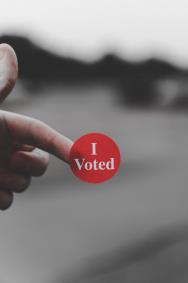|
Monday, November 22, 2021
 Rejecting a more narrowly tailored definition of homosexuality as is used by some other states, the NJ legislature specifically includes many employees to be protected workers who have a right to employment without discrimination because of affectional or sexual orientation, sex, gender identity or expression as well as some other protected classes. The New Jersey Law Against Discrimination (NJLAD) Has a Broad Definition of “Homosexuality” as to Protected Workers. This broad definition give legal protection to many persons who otherwise would not be covered under the legal protective umbrella of the NJLAD. The statute states that: “Homosexuality means affectional, emotional, or physical attraction or behavior which is primarily directed towards persons of the same gender.” The NJLAD specifically stipulates that all NJ workers have a right to employment without discrimination because of affectional or sexual orientation, sex, gender identity or expression as well as some other protected classes. Read more . . .
Monday, November 15, 2021
 New Jersey employees who are victims of race discrimination in their employment frequently mistakenly believe that they have to spend time first filing an administrative claim, a complaint, with a government agency before they are allowed to file a discrimination lawsuit in Court. Not true. While this is true if an employee or a terminated employee wants to file the discrimination lawsuit under federal law, New Jersey victims of employment race discrimination have a quicker route and may file a race discrimination lawsuit directly in New Jersey Superior Court under New Jersey’s state law without having to first file an administrative complaint with an agency. This is true for all types of employment race discrimination claims, i.e. Read more . . .
Monday, November 8, 2021
 New Jersey, as in other states, is in short supply for educated, trained, and qualified employees in many essential professions such in the medical professions. Similar to racial status, an individual’s immigration status can no longer be used as an excuse to discriminate among equally educated, trained, and qualified persons. Last year New Jersey Governor Phil Murphy signed legislation (S2455). This legislation prohibits lawful presence in the United States as a qualification to obtain a professional or occupational license, provided that the applicant meets all other requirements for licensure. This NJ legislation affects approximately 500,000 undocumented residents in New Jersey. Read more . . .
Monday, November 1, 2021
 Female executives and managers are fewer in number than males in many US industries according to a government study. In management occupations in business and financial operations, women hold just 42% of the management positions. US employers promote males to high level executive management positions in larger numbers than the females. For employment title/positions as “Chief Executives”, the gap is even larger: executives who are women hold only 31% of the title/positions as “Chief Executives”. The demographics of employees who are classified as a “General and Operations Manager” is 72% males to 28% females. Read more . . .
Monday, October 25, 2021
 Persons sometimes think that the issue of voting rights has no direct bearing on them personably. These are typically persons who have not experienced their names being wrongly purged from voter registration lists, nor prevented from voting, or having their votes not be counted by other unanticipated voter suppression methods. However, when you cast your vote for elected officials, you are casting your vote for your representatives who will draft, promote and vote on passing laws that expand your rights as an employee or diminish them. These are laws that establish rights for employees who are members of a protected class, such as race, gender, disability, pregnancy, sex, sexual orientation, members of the Armed Forces, etc. The laws also define the classes that are legally protected from job discrimination. Read more . . .
Monday, October 18, 2021
 A far too common complaint voiced by commercial truck drivers are the exorbitant demands placed upon them by their employers to drive an excessive amount of time without breaks. While it’s a profit-driven motive on the part of businesses, it disregards the potential dangers to the public and such practices frequently run afoul of the law. Sometimes when employees complain or object to their employers that the excessive driving without sufficient breaks runs contrary to State Vehicle Code Regulations for such drivers, their employers remain impenitent about their dangerous practices and continue to enforce such demands upon their drivers. In New Jersey, if you complain about such practices that run afoul of the law and your employer retaliates against you, you may have a valid whistleblower claim under the New Jersey Conscientious Employee Protection Act, N.J. Read more . . .
Monday, October 11, 2021
 Black male workers have often come to me because they earn less than others on their job who do the same work but are a different race. If you are doing substantially the same job as others of a different race but are paid less, then you may with some exceptions have a claim for discrimination under the Diane B. Allen Equal Pay Act. I have successfully represented Black men and other minorities who suffered harassment and illegal wage and salary discrimination and was successful in recovering money for them. You do not have to experience overt racial harassment to bring a race discrimination claim under the New Jersey Law Against Discrimination. Read more . . .
Tuesday, October 5, 2021
 It is unfortunate and sometimes illegal that employers will give pay raises to older male workers, but decline to give the same increases to their older female workers. If you are an older female worker who is not give raises on par with your male counterparts, you may have a claim for unequal pay under the Diane B. Allen Equal Pay Act. I have represented numerous NJ employees whose employers illegally discriminated against them in wages and salary and was successful in recovering money for them. This Act awards trebles damages to a plaintiff who was illegally discriminated against in pay because of sex or gender (and other protected classes). Read more . . .
Monday, September 27, 2021
 Female Hispanic workers have a double whammy of an unequal pay gap between them and white males doing comparable work. Studies show both race and sex contribute to the wide gap between them and white male employees more than any other comparison of races, ethnicities, and sex. Quite surprisingly, in New Jersey, the pay gap between Hispanic women and white men is the largest in the United States according to the NJ governor’s office. According to several surveys, female Hispanic employees have largest disparity in pay between themselves and comparable white male workers, more than any other demographic. This is true across the board in every occupation in the United States. Read more . . .
Monday, September 20, 2021
 Wage discrimination in your past employment positions should not follow you into your future employment! Unfortunately, up until January 1, 2020, it was legal for prospective employers in New Jersey to ask applicants what they earned in their prior employment. Employers would frequently then scale down their offer of wages proximate to the applicant’s prior earnings in their former employment, i.e., pay as little as they could get away with while still maintaining a work force. This perpetuated the historic wage discrimination practices. Read more . . .
Monday, September 13, 2021
 On August 24, 2021, the US House of Representatives approved The John Lewis Voting Rights Advancement Act, named for the civil rights leader and Georgia Congressman John Lewis, who died in 2020. This new bill aims to restore the full protections of the original, bipartisan Voting Rights Act of 1965. It has been widely discussed that the bill faces an uphill battle in the Senate. Although the Voting Rights Act of 1965 was reauthorized by Congress in 2006, the Supreme Court eviscerated it in 2013 in the Shelby County v. Holder decision. Read more . . .
|

|
|
|